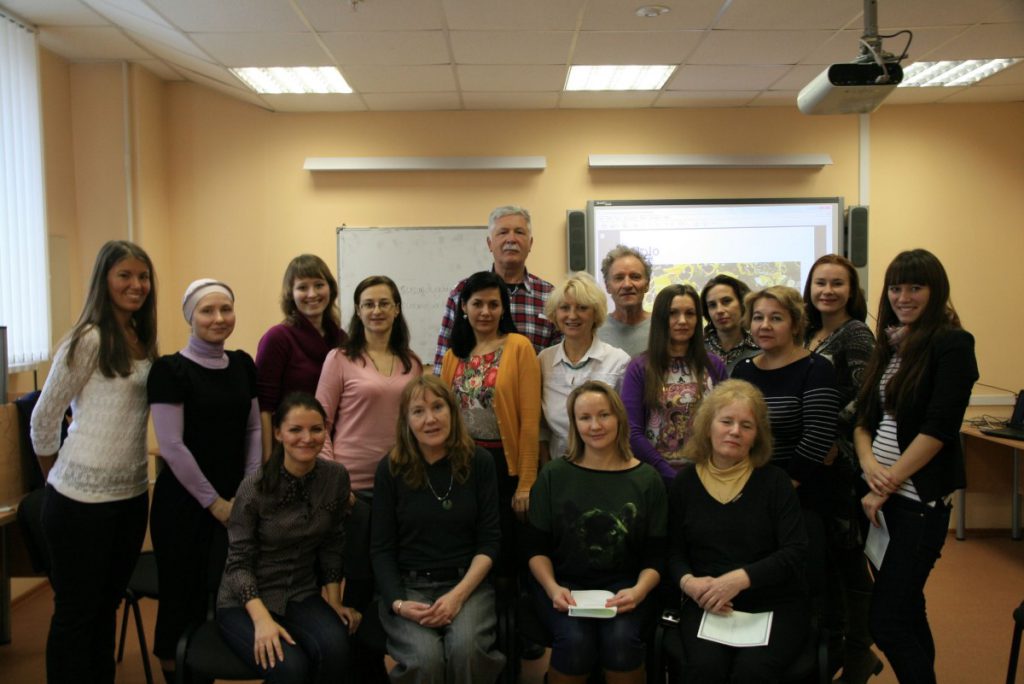
The three biggest earners on my site are my products, speech writing and AdSense.Susan Dugdale from write-out-loud.com
How do you get invited to teach at a Technical University in Russia when you live in a small seaside village in New Zealand? Or to write a James Bond themed opening speech for a CEO hosting an international company event?
You take your passion online.
You “write out loud,” as Susan Dugdale would say. Family lore has it that Susan learned to read at three and hasn’t stopped since. Her love for the written and spoken word led her to a teaching career in high school level English and drama.
With the advance of the Internet she realized that she could bring her knowledge and skills to many more people than as a teacher. But it wasn’t until she tried – without success – to find an appropriate funeral poem to include in a eulogy that write-out-loud.com was born.
There was a place, she decided, for an eclectic gathering of ‘death-themed’ poems chosen to fit an audience similar to herself.
 11 years later her website has grown into an online business that helps people prepare and give speeches for all types of life situations. It allows Susan to work from home, writing speeches for extraordinary people in extraordinary situations.
11 years later her website has grown into an online business that helps people prepare and give speeches for all types of life situations. It allows Susan to work from home, writing speeches for extraordinary people in extraordinary situations.
It even allowed her to assure her husband that there is income coming in despite appearing not to work.
But let’s hear Susan’s story in her own words…
1. How did you decide about your niche, public speaking? How did you know it was the right topic for you and had great business potential?
Deciding on my topic area was relatively straightforward. I knew it had to be something to do with words and using them because I’d been a teacher of English and drama for many years. It was the area I knew reasonably well and genuinely loved.
The precise niche within that sphere was trickier to nail down. I dithered around over whether it would be creative writing, as in short fiction, which I was initially drawn to, or public speaking.
Public speaking won out after a lengthy period of debate with myself and SBI!’s Brainstorm It! tool. The numbers for short story writing, regardless of how I spun the keywords – creative writing, short fiction etc – weren’t encouraging. The area appeared over-represented already, and after looking at the top sites I decided I had very little new to contribute.
In contrast, the public speaking area was relatively open and on reviewing what was there I plunged headlong in.

Susan knew the broad area for her business should be something to do with the English language, either around writing or speaking.
She then used SBI!’s keyword brainstorming and analysis tool (Brainstorm It!) to dig deeper. Brainstorm It! brings back hundreds of keywords (aka “topics”) related to your niche concept. For each keyword, it tells you how many people search for it (demand) and how much competition there is (real supply).
With smart filter and analysis functions, Brainstorm It! helps you decide if your business niche is too broad, too narrow or just right. It considers several factors, including how much time you plan to invest in your business.
In addition to comparing the numbers that Brainstorm It! revealed for her two niche ideas, creative writing and public speaking, Susan also looked at the major player in these fields. Which of the two topics was covered more extensively already, with many good quality sites ranking in Google’s top spots?
This additional, qualitative research confirmed what she already suspected from the numbers: public speaking had less competition and more room for her to establish herself as an authority than creative writing.
Does this kind of in-depth research sound too daunting? Fear not. The SBI! Action Guide walks you through it, step-by-detailed-step.
Unlike 99% of solopreneurs, Susan executed this all important preparational phase well, except for one part, which she admits below…
And now we get to the part I feel embarrassed to admit. I didn’t know whether public speaking had any business potential. It didn’t occur to me to find out! I was far too consumed with the process of researching keywords, writing, learning about how to build a page, upload an image and so on to have room in my mind for anything else. Traffic was what I thought was king – visitors.
I didn’t seriously consider the money making potential until I had hundreds of unique visitors per day.
If I was building the site again I would do it differently – assessing the business possibilities alongside content development.
It’s very good to see the increased awareness of the importance of monetization in the newer SBI! material.
However, if there’s one piece of advice we hear time and again from our most successful solopreneurs, it is to follow the Action Guide diligently. DAY 4 of the Action Guide is dedicated to investigating and planning the most suitable monetization options for your niche.
You’ll use a handy “monetization planner worksheet” to work your way through seven monetization possibilities. For each one, you’ll assess how feasible it is for your topic, interest and time availability. If, at the end of this evaluation process you realize that there’s not enough profit potential in your niche, you have two options:
- Option 1: Go ahead with your chosen topic anyway. Passion for a niche can bring its own rewards. Just be aware that it may never earn you much income.
- Option 2: Go back and restart the research and brainstorming process to find a more profitable niche.
What happens if you don’t evaluate the business potential of your niche, as Susan did? You can still be successful, but it will take you longer to get there.

2. Your SBI! site, www.write-out-loud.com has a beautiful design. Did you create it yourself?
I am glad you think it’s beautiful. I believe that every solopreneur and webmaster likes to be told how attractive her or his website is – a bit like how a mother enjoys being complimented on her baby. This applies even more to SBI! members who tend to put so much of themselves into their sites and online businesses.
My site was given a major overhaul a couple of years ago by Will Urbanek from Clickstream Designs. It was my design, interpreted and implemented by him. He did an amazing job – curbing my misplaced enthusiasm for over-the-top fonts and steering me safely past faddish temptations.
I have a lot to thank him for. For instance, at the same time he redesigned the look and feel, he also set up the mobile version which these days gets more traffic than the desktop! Today I have a site that I’m happy with and feel proud to show friends and family.
However, doing a major make-over for an older site is a different challenge. You can still do it yourself, of course, but the learning curve is rather steep. Time is a solopreneur’s most precious resource, so you may be better off to outsource a one-time task like redesigning your site to an expert.
As an SBIer, you’ll have access to the SiteSell Professionals, a team of highly qualified webmasters, designers and online business owners who can help you with design and business building tasks. Will Urbanek, who redesigned Susan’s website, is part of that team.
3. Tell us about your philosophy regarding content. How do you know what your prospective customers are looking for? Where does this information come from?
My idea of what makes good content is fairly simple. If I searched and opened a page from my site would I like it? Would the page answer my question or solve my problem? For example, if I was a classroom teacher looking for activities for my public speaking class, would I find what I wanted if I landed on one of my public speaking games pages?
I try to put myself in the shoes of the person looking. I don’t always get it right but it’s a good start.
 I use a mix of strategies to try and figure out what people want. I fiddle around inside Brainstorm It! (Version 4 just launched – Your Next Generation Partner in Business) trying out all sorts of combinations of keywords and phrases. I check out existing material and ask myself if it measures up with what I thought I’d find.
I use a mix of strategies to try and figure out what people want. I fiddle around inside Brainstorm It! (Version 4 just launched – Your Next Generation Partner in Business) trying out all sorts of combinations of keywords and phrases. I check out existing material and ask myself if it measures up with what I thought I’d find.
One example for this kind of research: “Teachers Pay Teachers,” a marketplace for teachers to sell their resources to colleagues, helps me find out what is selling well in my niche. Is it lesson plans? What format is being used? It’s great as a reference point.
Sometimes I use my newsletter list to ask a specific question. For example, I asked my readers whether they would consider using and paying for tutoring via Skype. They said yes. So I created a page to offer my Skype coaching service.
It’s always better to ask your audience rather than presuming to know what they want. Otherwise you run the risk of creating content or even a product that nobody is really interested in.
Take my PDFs about impromptu speaking topics for example. I wouldn’t have put these together without learning they were wanted. They seemed too obvious, too simple to me. However they solve a problem for some people – enough to make putting them together worthwhile.
Unfortunately I can’t say the same about my sponsorship sales page on which I lavished hours and hours of my time – creating graphics and writing copy. This page has drawn zilch interest over the two years it’s been online – a state of affairs I don’t expect to change!
Obviously while I might think being highlighted on write-out-loud.com is utterly desirable, it’s a solo presumption. Mine, and mine alone – a sad, solitary lesson.
- Put yourself in your reader’s shoes. Whenever you create a new page, take a step back and look at it from your reader / prospective customer’s point of view. Does it fulfill what the reader expected? Does it answer her question or solve her need?
In other words, does your page satisfy your visitor’s search intent? - Continuously research your market and your competition. If there is no niche specific marketplace as in Susan’s example, browse Amazon for bestselling books in your niche. Or participate in relevant Facebook groups and forums. Even Wikipedia can be a source for new content ideas!
- Ask your audience. This is a no-brainer. If you have a subscriber list, Facebook fans, Twitter followers or loyal Instagram base, ask them about what they want or what’s missing on your site. This is especially important for product development decisions, which brings us to lesson Nr. 4.
- Decide based on data, not assumptions. Creating a product or launching a service takes a lot of time and – if you outsource parts of it – money. You better be sure that this is something your audience is willing to pay for before you commit to it.
4. You provide lots of information and resources for free. How do you “upgrade” people from being free content seekers to paying customers?
Upgrading happens in several ways.
My pages about public speaking activities and games are very well visited. And I know that teachers and group leaders want to download these games. So this was a logical place for me to offer my downloadable games packages.
People can buy the most popular of them separately, as a threesome or in an ebook of 28. They are buying the game instructions as well as the resources needed to play it.

I have multiple how to write speech pages of varying sorts – eulogies, birthday speeches, weddings and so on. These draw lots of people in. Some of those would much prefer to hand over the responsibility of writing the required speech to someone else – me. Consequently, these pages are the ideal spot to offer my speech writing services.
I am also planning an app which will offer a simple “automated” speech writing service. I am confident that the app will be very popular among the people who visit the how to pages and want a speech immediately without expending either a great deal of effort or money!
Well researched informational content, presented in your unique “been there, done that” voice attracts targeted visitors to your site.
Your visitors value the information you provide; they interact with you on social media, or comment on your web pages. They subscribe to your newsletter. They begin to trust you as a respected authority in your niche.
Your “PREsold” visitors keep coming back for more. Repeat visitors become even more “PREsold,” which leads into monetization, both via passive methods (e.g. advertising, sponsorships, affiliate programs) or active methods (e.g. selling eBooks or your own services).
The important thing to remember? Monetization comes last when building a profitable online business. Speaking of which, let’s hear more from Susan about how she monetizes…
5. You offer speech writing services and Skype coaching. Are these your main income streams? How else do you monetize your online business?
The speech writing makes up a significant amount of my income. I love the work. It’s so varied and comes in from people all around the world. For instance this week I’m working on a maid of honor speech for someone in California. I’ve just finished a best man speech for someone in Canada, and a tribute speech for someone from Barcelona to deliver in Tel Aviv.
The coaching pulls in a similar variety of people, and although it doesn’t provide a great deal by way of income, it certainly provides interest! I get to meet and work with amazing people. Its both humbling, and an honor.
To summarize my present income streams:
- Adsense: This was the first revenue collecting method I put on my site once I had sufficient visitors to make it worthwhile. Over the years it’s given me thousands of dollars, literally. I have been, and am, most grateful to Mr Google despite the fact that there have been fewer ups and an increasing number of downs over the last couple of years. These days my monthly Adsense payment is significantly less than it was 18 months ago.
- Other online advertisers: I have two other small income streams from advertising networks similar to AdSense: Sovrn and Kumma.
- E-products: I sell an ebook of public speaking games and several other pdf products – impromptu speech topic cards and 3 public speaking games. The ebook sells very well, far outstripping the others.
- Affiliate income: I have links to several products and when visitors buy them I am paid part of the purchase price.
- Speech writing
- Coaching
The three biggest earners on my site are my products, speech writing and AdSense.

- Selling digital products
- Selling her coaching and speech writing services
- Advertising income and
- Affiliate income.
Never put all your monetization eggs in one basket. There are many ways to monetize your niche. “Passive models” (ex., AdSense and affiliate programs) have been paying less well for all solopreneurs in recent years.
Adsense, in particular, seems to have “hooked” solopreneurs with high payouts in its early years, but is gradually paying less for valuable real estate on your sites.
Susan’s highest earner is in line with what we recommend. Develop your own products. It’s far more do-able than most people realize, especially creating digital products.
But even developing physical products is not as hard as you may think. One section of SBI!’s resources, “Make It!”, enables you to conceive, source, market, sell, ship and support hard goods, even if you have no prior knowledge in that area at all.
6. How long did it take to start earning income from your online business? Is it a full-time or a part-time income?
I began earning from the site as soon as I put Google AdSense on it – just a little – literally pennies/cents per day. I remember the excitement of finally earning enough to receive my first monthly payout. It took 3 months to reach the $100 threshold!
Nowadays, over ten years later, I earn what could be regarded as either a very good part-time income or a low full-time one. I am working on making it larger.
Owning and building a business, whether it’s online or offline, takes work, especially in the first few months. It doesn’t come with “instant gratification.” Develop what we call “The Winning Solopreneur Mindset.”
Realize that you invest time (at less than minimum wage) and energy upfront now to build what will be a thriving business that yields long-term, evergrowing dividends later. You are not a 9 to 5 employee, sitting in your safe little cubicle, earning your safe little paycheck (although it’s a good idea to keep that job while building your online business).
The harder and smarter you work, the sooner will your business yield profits. Long-term profits that grow steadily and that ultimately enable you to quit that day-job and earn you more “per hour” than you could have dreamed.
7. What has been your biggest challenge so far as a solopreneur?
The biggest challenge is always the one in front of me right now. So today it’s dealing with a hump in the app development project.
About a year ago, I outsourced the app development to a programmer in Pakistan. I chose this person because a fellow SBI! member had had good experiences with him. Part of the task was to implement a PayPal payment system.
But after a year of working on the app, the programmer now told me that he can’t finish the development because PayPal is banned in Pakistan (well, I wish he had told me that before he started!). So it looks like I need to find another programmer to complete the app!
If I stand back a little from the day to day concerns, my biggest challenge is time – making the most of what I have, i.e. making good, non-dithery decisions and acting on them. I can be prone to paralysis – becoming stuck in a “what if” no man’s land and unable to move forward.
The reasons to hire help fall into one of these two scenarios:
- There are simply not enough hours in the day to do everything yourself. In this case, you could look into hiring a Virtual Assistant.
- The task requires a skill set that you don’t have and can’t or don’t want to learn.
Scenario number 2 is the trickier one. Why? Because you’ve never done the work you outsource yourself (e.g. developing an app). This makes it more difficult to evaluate a potential freelancer and to describe exactly what you want him to do for you.
Our advice to Susan? Take a break. Do some gardening. Blow off steam or ask for tips in the SBI! forums. Then come back to the problem with fresh eyes and a calm mind to find the best solution.

8. What do you enjoy most about being an online business owner? How has it changed you, your life, your family?
My life has changed immeasurably. I could never have imagined what I do now when I was much younger. For a start the Internet didn’t exist then! Neither did computers!
So to have access to the means to build something that will allow me work from wherever I am, provided there’s an Internet connection, is truly amazing.
 Through write-out-loud.com I’ve been able to leave full time 9-5 employment.
Through write-out-loud.com I’ve been able to leave full time 9-5 employment.
I’ve been able to assure my husband there is income coming in despite appearing not to work.
I’ve been invited to teach in Russia (see photo to the right).
I’ve written speeches for extraordinary people in extraordinary situations – the 007 themed introduction for a CEO hosting an international company anniversary event is memorable!
And lastly, what this online business has done is show me, and my family, that freedom from the regular workaday world is possible. That’s huge!
How you define this freedom exactly, is up to you. But we bet that it contains at least one of the following:
- Quitting your day job
- Answering to no one other than yourself
- Doing something you love
- Learning something new everyday
- Setting your own work schedule
- Working from wherever you want
- Generating income despite “appearing not to work” (thanks Susan for the chuckle )
So, if you’ve yet to reach that kind of freedom in your life, starting your online business is the crucial first step.
9. And finally… What’s your top tip for someone who is just starting a solopreneur career?
Get the monetization plan sorted alongside deciding on your niche. It will save you so much time and effort later!
We said it before, but it’s worth repeating: the SBI! Action Guide will keep you on the right track. All you have to do is follow it, step-by-step.
And very lastly, block your ears, put one foot after another and do it. If I’d listened to all the naysayers around me when I first started I’d never be where I am now because write-out-loud.com would not exist.
Mike Kawula, entrepreneur and CEO of “Social Quant” takes this even a step further. He recommends to “slaughter the naysayers” (figuratively of course), whether they are around you or inside your head.

Latest posts by Margit Streifeneder (see all)
- From Traffic Peaks to Auto-Pilot: A Psychologist’s Website Success Story - March 27, 2025
- From Swim Teacher to Solopreneur: Building Passive Income Online - February 27, 2025
- From Concierge to Global Tours: 10 Lessons for Travel Business Growth - December 19, 2024

